
Is it possible to talk about Paris without using superlatives? Home to more museums and more galleries than any other city in the world and more than 100 Michelin-starred restaurants, Paris’s reputation precedes it.
From cobbled streets and steep stairways in Amélie Poulain’s Montmartre, to the polished marble walkways of Saint-Germain-des-Prés, to street art and community cultural centres in edgy Belleville, each of Paris’s quartiers has a distinct personality. Confused by the seemingly haphazard numbering system of the arrondissements? Escargots aren’t just on your plate; the city is numbered like a spiral snail’s shell, starting in the historic centre.
The scent of fresh crêpes cooked on a street corner, sunlight bouncing off the tin roofs of the city’s iconic Haussmann buildings, beautiful and fashionable Parisians with small waists and even smaller dogs... combine it all together and it’s hard not to fall under the city’s spell.
Read more on France travel:
As the city prepares to host first the Rugby World Cup this September, then the Olympic Games in 2024, new hotels, museums and restaurants are popping up in abundance. With 16 Eurostar services per day shuttling visitors between central London and Paris in little more than two hours, there’s never been a better time to visit.
Here’s what to do, where to stay and what to eat to experience the French capital in style, be it your first visit or your fiftieth.
Best things to do in Paris
Eiffel Tower
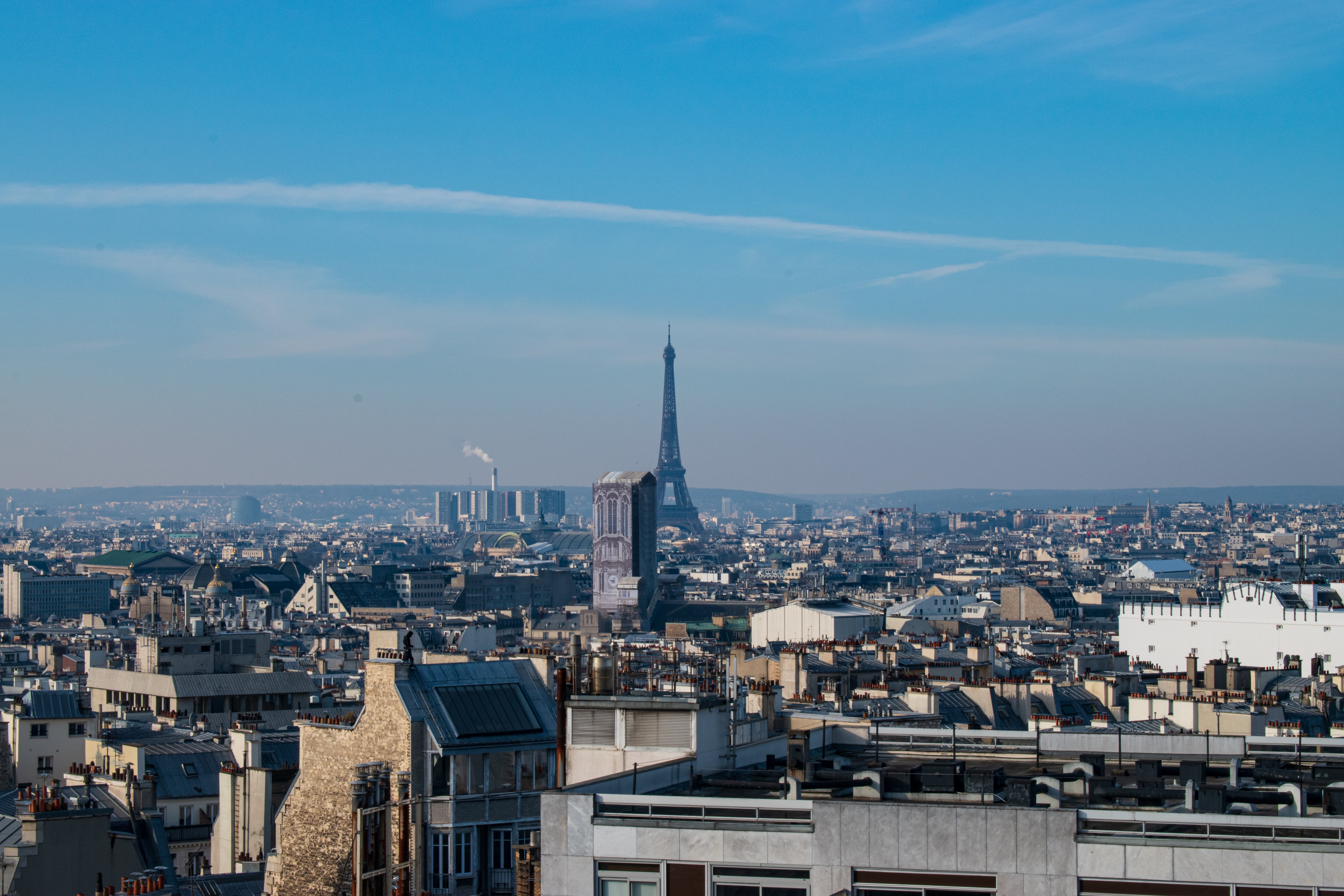
Don’t ignore the classics, they’re popular for a reason. The Eiffel Tower (€28.30 with lift access, open daily) is arguably the most recognisable landmark in the world, and first-floor restaurant Madame Brasserie reopened its doors last year, serving up quintessential French cuisine with a view.
The Louvre, Musée d’Orsay and Centre Pompidou
Art gallery must-dos include the Louvre (€17, closed on Tuesdays); allow for at least half a day there and go with an itinerary in mind, as the collection of more than 5,000 works of art can be overwhelming. There’s also the Musée d’Orsay (€16, closed on Mondays) for the world’s largest collection of Impressionist art and the building itself, a Beaux-Arts railway station, plus modern art oddity the Centre Pompidou (€15, closed on Tuesdays), which looks like a giant hamster cage has been dropped among the Haussmann buildings.
Alternative art spots
Newcomer l’Atelier des Lumières dazzles (€18, open daily). A multi-sensory experience, its rotating exhibition uses AI to turn the walls and floor alike into a giant green screen to bring artworks to life, all set to music. If you’ve ever wondered what it would be like to jump inside a painting, this is it.
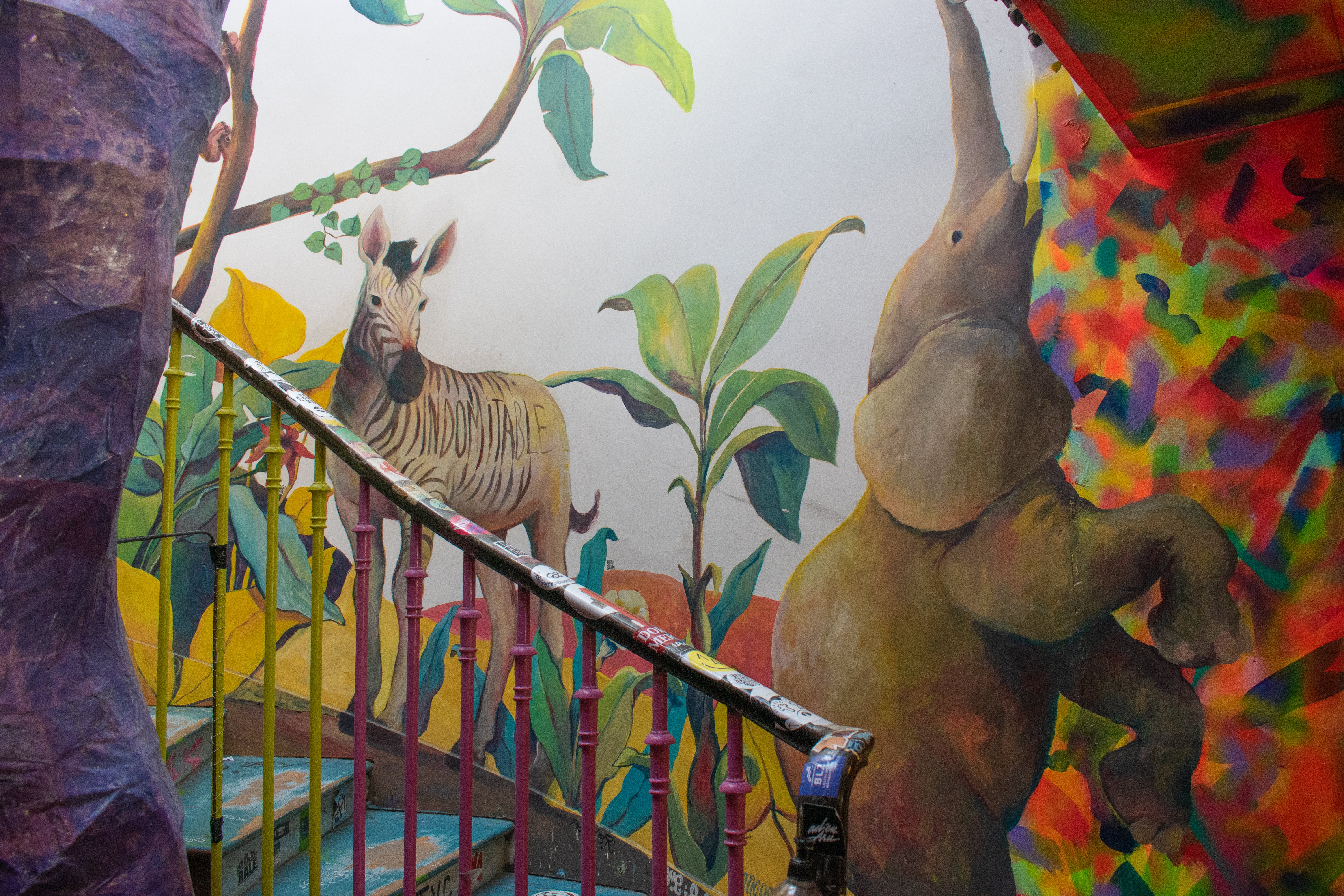
Art doesn’t have to come with a million dollar price tag, as the collective at 59 Rivoli are keen to demonstrate (free entry, donations encouraged, closed on Mondays). Originally an illegal squat, the six floors have become a rich and ever-changing tapestry of murals, sculptures and political statements. Visitors will likely see the artists in residence at work (or chatting over coffee).
Versailles
Before the French decapitated their monarchs and banned religious symbols, some of the world’s most opulent churches and palaces were built in Paris. The Château de Versailles (€21.50, closed on Mondays), with its hall of mirrors, perfectly coiffed gardens and 2,300 rooms, boggles the mind. Strapped for time? Visit Musée Jacquemart-André instead (€16, open daily), a 19th-century mansion with a private art collection and opulent rooms.
Sacre Coeur
Notre Dame is still recovering from the 2019 fire and remains closed to the public, but the Sacré-Coeur (free entry, open daily) is arguably more impressive, and views from the basilica steps are some of the finest in Paris. The Grand Mosque (free entry, closed to the public on Fridays) has a beautiful walled courtyard garden.
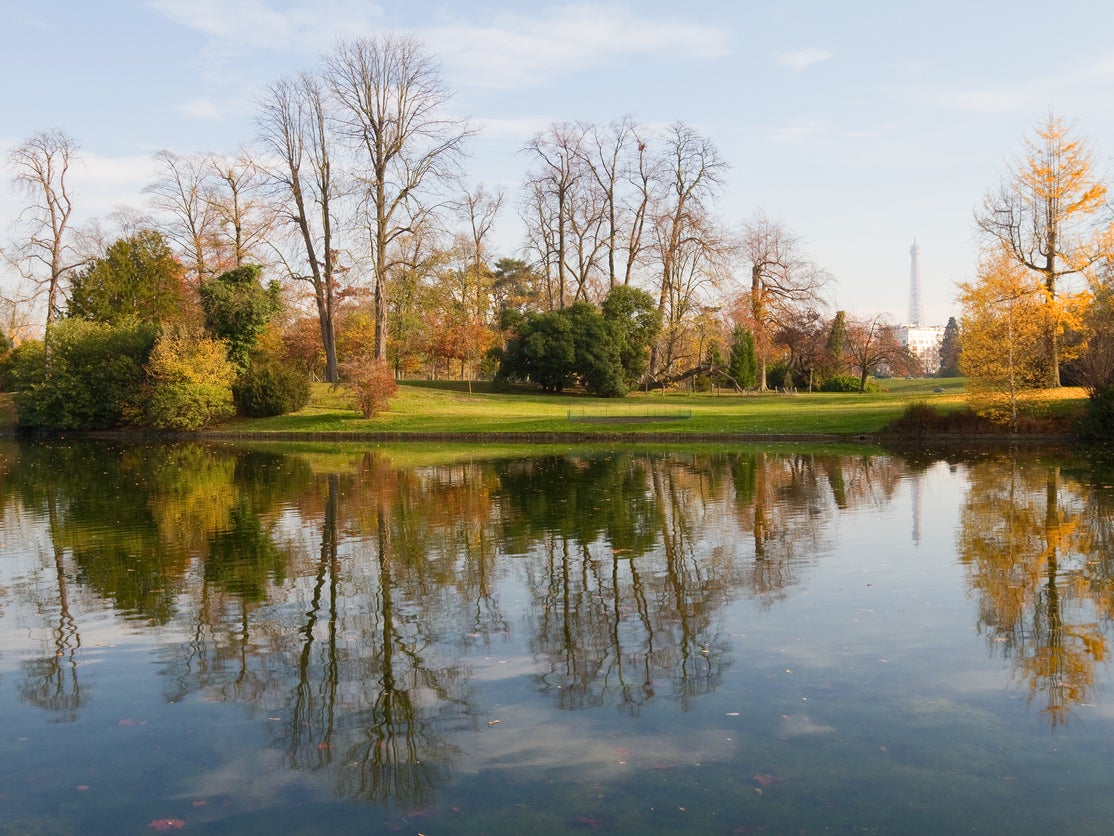
Bois de Boulogne
Craving green spaces among the gold-gilded buildings? Pack a picnic and spend the day at Bois de Boulogne.
Best time to visit Paris
There’s never a bad time to visit Paris. Equally gorgeous when the banks of Canal St. Martin come alive on long summer days, and when the Eiffel Tower seemingly pierces brooding winter storm clouds, this is a city for all seasons. For the best rates, travel mid-week and avoid school holidays. Many museums are closed on Mondays or Tuesdays.
Where to stay in Paris
Notoriously expensive and overwhelming in choice, accommodation in Paris is a minefield, and risks setting you back a month’s salary.
Our favourite hostel for solo travellers is The People – Paris Nation. It’s well-located, clean, comfortable, and has a rooftop bar for those all-important sunset views.
Rooms available from{{#price}}{{price}}per night{{/price}}{{^price}}Check availability for dates and prices{{/price}}
Rates provided by Booking.com
Casting off a once seedy reputation, Montmartre is now a hotspot for artisan bakeries, international cuisine and quirky galleries and bookstores. Hotel Rochechouart epitomises old-world glamour. The art deco dining room looks like a Hemingway haunt. Forget cramped chambres de bonne (maid’s rooms), the top floor suites here are palatial in size. The rooftop bar has unparalleled views of the Sacré-Coeur.
Rooms available from{{#price}}{{price}}per night{{/price}}{{^price}}Check availability for dates and prices{{/price}}
Rates provided by Booking.com
Hôtel Dame des Arts has arguably the most enviable location in the city. Running with the theme of spectacular rooftops, this one is so close to the spires of Notre Dame, Quasimodo could have jumped it. Elegant, with an onsite gym and sauna and deliciously perfumed with the hotel’s signature scent, it makes you feel like the main character in a romantic Parisian movie. Saint-Michel metro is literally steps away.
Rooms available from{{#price}}{{price}}per night{{/price}}{{^price}}Check availability for dates and prices{{/price}}
Rates provided by Booking.com
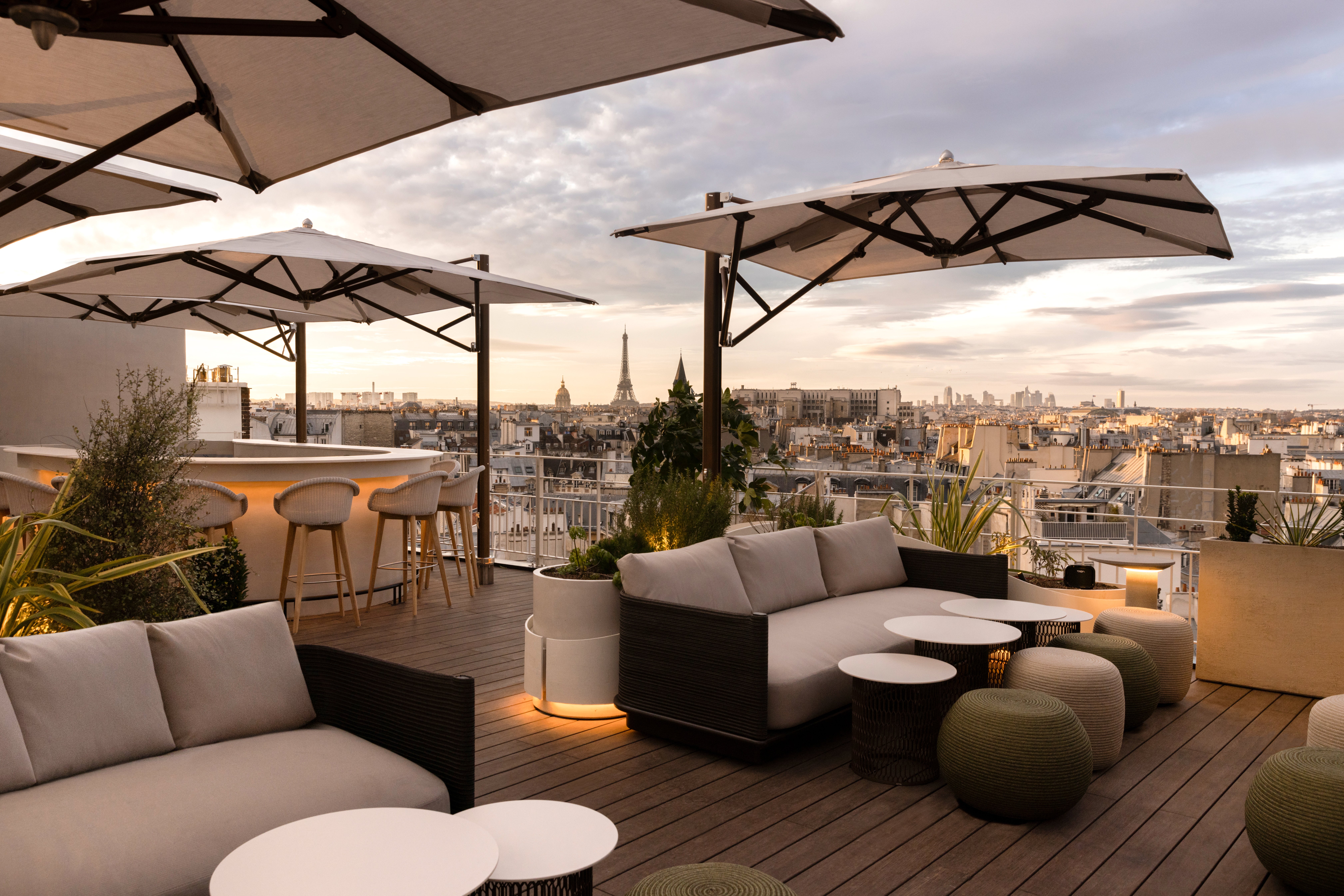
Read more of our reviews of the best hotels in Paris
Where to eat in Paris
Gone are the days of the French capital refusing to serve anything that isn’t marinated in wine and grave accents.
For a grab-and-go lunch, head to Babka Zana in Montmartre. Sandwich flavours such as leek, artichoke and feta make a croque monsieur look bland, but the highlight is dessert, with babka combinations like pistachio and mandarin.
If you’d prefer a sandwich that’s a little more French, join the monochrome hipster brigade that frequents Paperboy Paris in the Latin Quarter. Canteen vibes, excellent coffee and plenty of veggie options.
For a classic wine bar experience that won’t decimate your wallet, Chez Nous in the 6ème has reverie-inducing cheeses, friendly, informal service and is perfumed with the heady aroma of truffle. Wine from the extensive menu is free-poured at your (pint-sized) communal table.
Fine with splashing out? Septime (one Michelin star) is refined and elegant, with uncompromisingly excellent modern French cuisine. Reserve well in advance.
Where to drink in Paris
An unflattering reputation for “bad coffee” has done a 180, and Paris’s café scene went from laughing stock to latte heaven. Seine-side Wake Up Café hires exclusively ex-convicts to help get them back on their feet, and serves up a mean brew.
Meanwhile, for a top-quality cuppa with a wanderlust-inspiring selection of indie travel magazines, head to minimalist and chic Bonjour Jacob.
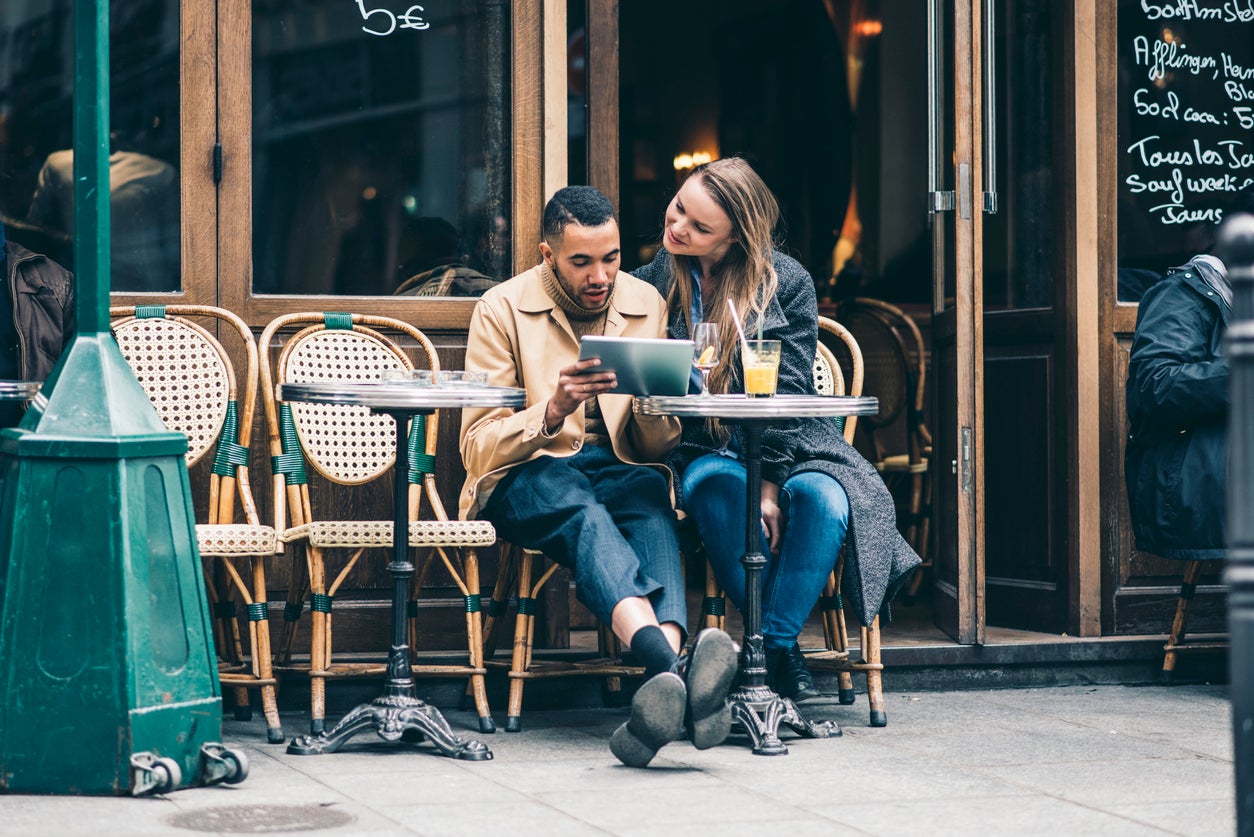
For cocktails with a Parisian panorama, Le Perchoir Ménilmontant (Wednesday to Saturday) is the place to be. On the seventh floor of an industrial building with regular live music events, it’s hard to beat for vibes. Le Perchoir also has bar-restaurants in Le Marais and Porte de Versailles.
Dance the night away in unpretentious Le Piano Vache (closed Sundays) in the Latin Quarter. Always busy, slightly grimy and with regular jazz nights, pints are (by Parisian standards) inexpensive.
Where to shop in Paris
Unless your wallet is deeper than Paris’s catacombs or you have a penchant for overpriced tourist tat, avoid the Champs-Élysées. For cheese (check customs rules or prepare for Poldark-style smuggling missions), the city’s oldest covered market, Les Enfants Rouges, has a vast fromagerie (and is an excellent spot for a leisurely lunch and wine).
Convenient for passengers travelling by Eurostar is Marché Saint-Quentin (under 10 minutes’ walk from Gare du Nord), which among the varied street food stands has excellent local produce.
Thrift shop kings and queens, Les Puces de Paris Saint-Ouen (Friday mornings and all day Saturday to Monday) is the largest flea market in the world... but take cash as the queues at the sole ATM make the Louvre look unpopular.
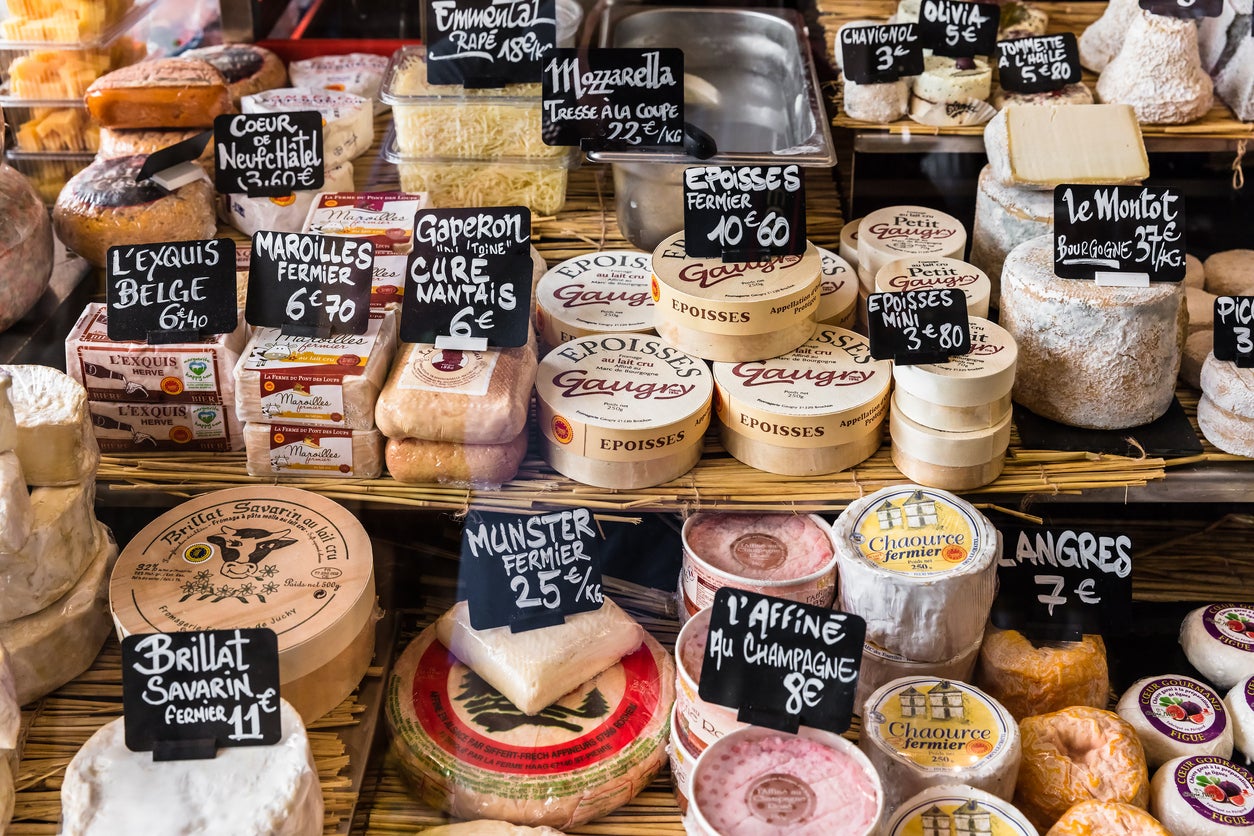
To pick up unique items of clothing, prints and organic food, head to vegan concept store and café Aujourd’hui Demain. For homewares, quirky fashion and an excellent used bookstore-cum-café, go to three-storey treasure trove Merci. Check the label before you pay; bargains are hidden among clothes made from bath towels with €200 price tags.
Travel essentials
How to travel around Paris
The metro system is comprehensive, and tickets cost €2.10/trip. Contactless payment isn’t possible; buy a carnet of 10 tickets from the machine or a rechargeable Navigo card (€5) to save queuing.
Architectural highlights
The entire city is an architectural masterpiece, but for sheer splendour, our pick is Versailles.
What currency do they use?
Euros
What language do they speak?
French
Should I tip?
France doesn’t have a big tipping culture, but Paris, which sees so many international tourists, is the exception. Around 10 per cent is appreciated.
What’s the time difference?
GMT+1
What’s the average flight time from the UK?
1 hour 15 minutes, but save time and CO2 emissions by travelling with Eurostar (just over two hours).
What’s the best view?
The top of Montparnasse Tower. The problem with the view from the Eiffel Tower is that Paris’s main landmark isn’t in it!
Insider tip?
Paris has heaps of festivals, but one of the best free events, the Fête de la Musique, falls annually on the Summer Solstice (21 June in 2023). Giant stages along the Seine and buskers and bands on every corner showcase Paris at its most festive.







